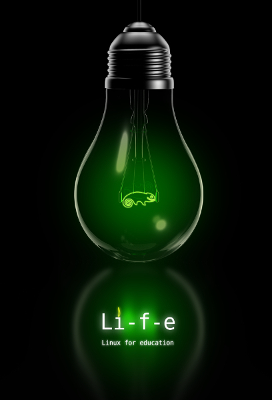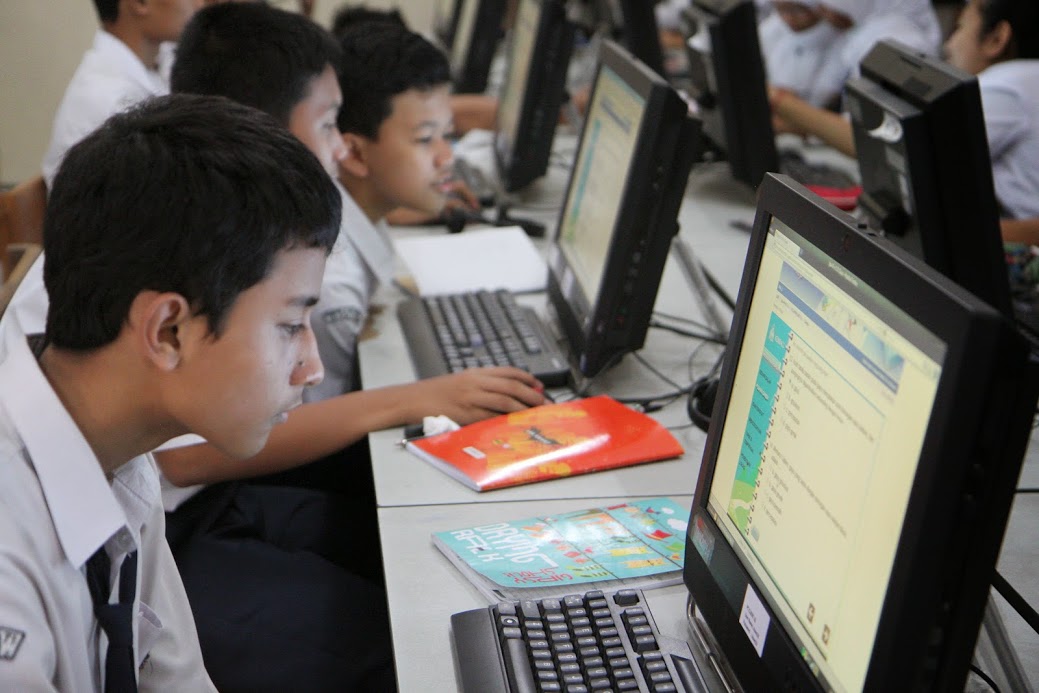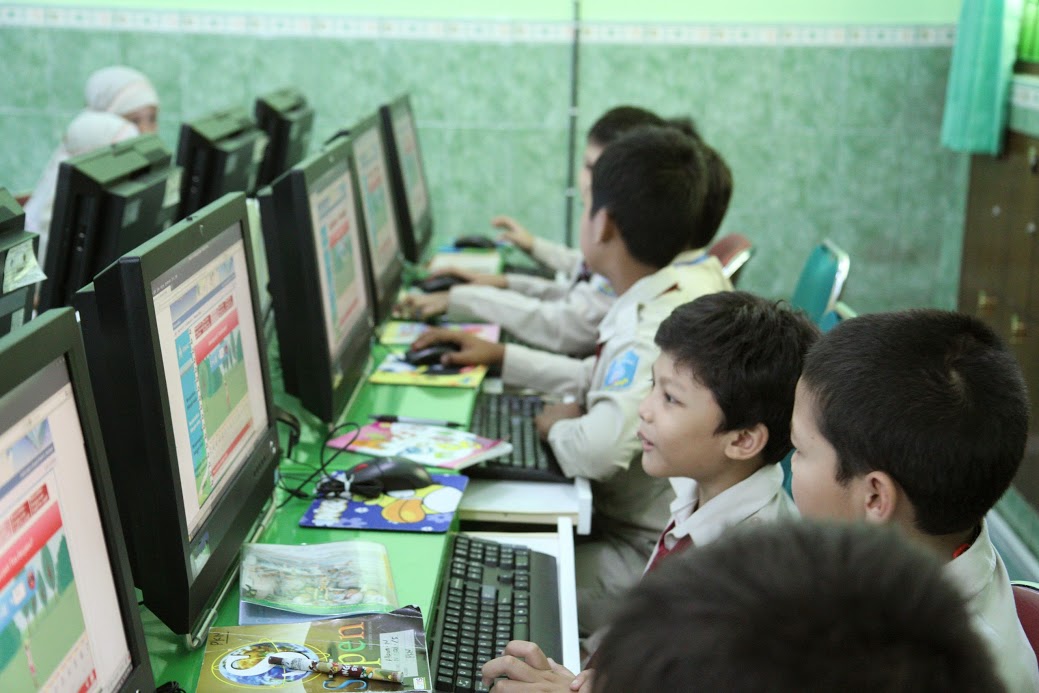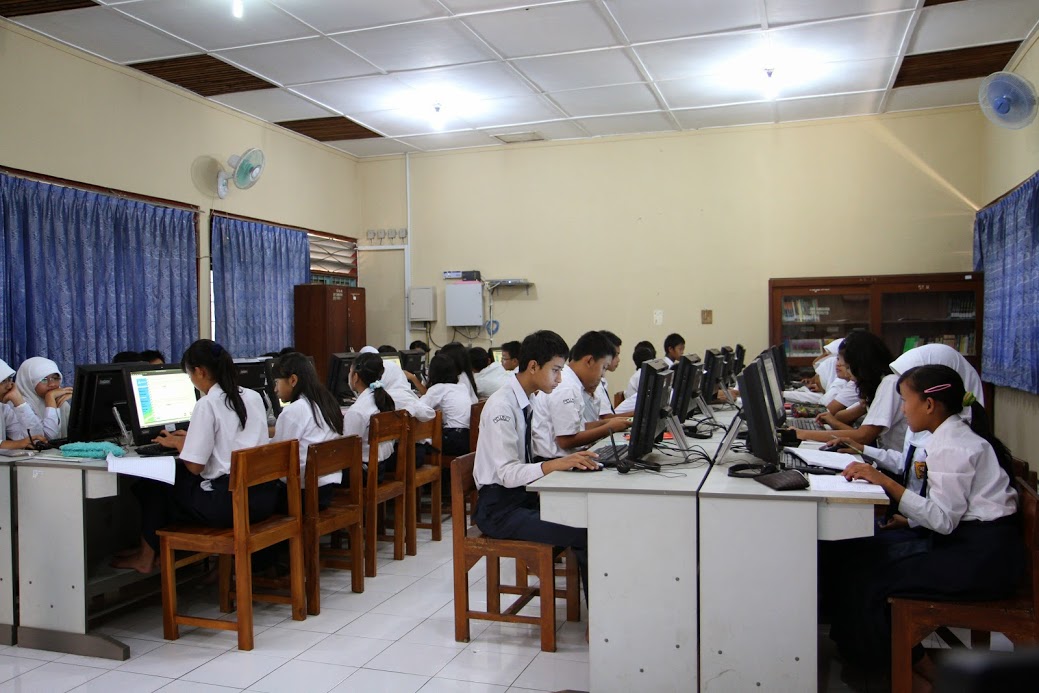Indonesia uses Linux, openSUSE for pilot project
27. May 2015 | Douglas DeMaio | No License
 An estimated 45,000 students from a province in Indonesia have enhanced their education and computer-usage knowledge through a pilot program using Linux and openSUSE that is expected to become a nationwide educational program.
An estimated 45,000 students from a province in Indonesia have enhanced their education and computer-usage knowledge through a pilot program using Linux and openSUSE that is expected to become a nationwide educational program.
From 2009 to 2014, the project called “Information and Communication Technology (ICT) Utilization for Educational Quality Enhancement in Yogyakarta Province” used openSUSE and created material with Linux to enhance educational quality and equality in Yogyakarta Province schools.
“More and more education people and officials come to Yogyakarta to learn about how to implement information technology in basic education,” said Mr. Mohammad Edwin Zakaria, an IT and Linux consultant for the program.
The program is expected to become a model of ICT utilization in the educational sector of Indonesia, Zakaria said. The pilot’s goal supports teaching and learning activities by providing ICT-based learning facilities, providing equipment, communication and network facilities, creating e-learning systems and developments, and by providing tools and support that are needed for schools activities to improve educational quality.
 “For the teachers, we conduct training of how to make learning material,” said Singgih Raharjo, the department head of Yogyakarta Province’s Education Communication and Technology Office.
“For the teachers, we conduct training of how to make learning material,” said Singgih Raharjo, the department head of Yogyakarta Province’s Education Communication and Technology Office.
Creating With Linux
Many new materials made by teachers are now available to students, Raharjo said.
“It is what we think open-source software still lacks behind the proprietary software,” he said. “At the beginning we try to introduce eXe Learning, but in 2010 it still difficult for them. Because of this problem, the project-owner finally decided to give them proprietary software to make learning material.”
Many of the schools are remotely located. Yogyakarta Governor Sri Sultan Hamengku Buwono X proposed ICT as a program that would increase and equalize educational quality throughout the province.
 “Many students and even teachers never had an experience with computers before,” Zakaria said. “Now they can interact with computer and Linux. We created special Math and Science learning materials for them. They can learn interactively with that material. Along with software packages on openSUSE Li-f-e like Gcompris, Tuxmath, kalgebra (and other KDE Edu), Tuxpaint, and Stellarium, they can learn many thing that they never imagined before.”
“Many students and even teachers never had an experience with computers before,” Zakaria said. “Now they can interact with computer and Linux. We created special Math and Science learning materials for them. They can learn interactively with that material. Along with software packages on openSUSE Li-f-e like Gcompris, Tuxmath, kalgebra (and other KDE Edu), Tuxpaint, and Stellarium, they can learn many thing that they never imagined before.”
Some of it can be accessed publicly at //lms.jogjabelajar.jogjaprov.go.id .
The pilot program consisted of several phases, was implemented in elementary and junior high schools, and was supported by several experts and professionals. Each school had a headmaster, math teachers, science teachers, and a PC lab technician involved with the project.
Making a Difference
 Government officials, university professors, consultants facilitators, technical staff, learning material experts, examination experts, community development experts and curriculum experts all turned the pilot into a successful program.
Government officials, university professors, consultants facilitators, technical staff, learning material experts, examination experts, community development experts and curriculum experts all turned the pilot into a successful program.
The children around Yogyakarta Province become smarter and more creative from this project, Raharjo said. Because the project was not only giving infrastructure, but was interesting and fun from the ICT-based learning materials, the results of national exams increased for the province.
The results were shocking, Raharjo said.
“The winners of the competition are not only centralized by students from the city, but also from villages,” he said.
One real success story was at SDN Jepitu Gunungkidul elementary school, which is located in the mountainous area about 60 km from the center of Yogyakarta. After the ICT project was implemented at this school, the school’s teachers developed their own ICT based-test for their student in the ICT laboratory.
“This kind of test, not only make the student happier, smarter and more creative, but also decrease the budget of school in holding the test,” Raharjo said.
The Learning Management System (LMS) uses Moodle on the data center as well as on the replicate server on the schools.
Using openSUSE
“We use around 10 servers with SUSE Linux Enterprise Server 11 SP1 on a data center in province capital,” Zakaria said. “It is configured with high availability (HA). It serves mainly as Moodle LMS server with MySQL database and Apache web server. It also serves as DNS, internet proxy, file server, and we host an internal openSUSE repository for our schools.”
Financially, the province and Indonesia can save money using openSUSE and Linux because of costs that are typically associated with proprietary desktop operating system licenses, but what is more important is the intangible benefits, Zakaria said.
“We introduce the power of open-source, so now everyone knows that there are alternatives out there,” Zakaria said. “Many young people also have more knowledge about the open-source tools and life-cycle so they can help in the future.”
Indonesia has many young, intelligent people, he said, and the population of the country is about 250 million people. He believes increases in computer, smart phone, tablet and internet usage will make the future generation of Indonesians more intelligent than his generation. With that growth in technical know-how and thanks to open-source education and Linux, Zakaria sees those qualities as making big differences for the country’s trade-balances and economy.
“I hope in the future they will become innovators, producers or at least can attract big companies or investor to invest in Indonesia. Hopefully it can increase the country’s competitiveness and economic condition.”
More than 500 schools took part in the program.
More Articles
From the Office of Education Yogyakarta Province
Invite Dikpora School Supervisor and Consultant Supervision Program for ICT EQEP
Dikpora DIY and Forms Community Schools ICT Consultant EQEP
Test results Media Learning: Students interested in ICT-Based Learning
From the Office of Technology and Communication for Education Yogyakarta Province
School Model Development Workshop for ICT EQEP Community
Implementation of ICT School Comunity
Utilization of Learning Material Training, 1st batch
Javanese Characters (Hanacaraka) Reading and Writing Application Launch
Yogyakarta become the best province in Indonesia for ICT implementation on Education
SMPN 4 Banguntapan (Junior High Schools) doing self-training for “ICT utilization for education”
Operational handover of ICT EQEP
Utilization of Learning Material Workshop year 2015
Technical Assistance for Management of IDC (Internet Data Center) and BTS (Base Transceiver Station)
Follow-up from school reporting, official doing site visit to schools
Utilization of Learning Material Training 2015, 3rd batch
Categories: Derivatives
Tags: administrators development ICT Indonesia Linux model opensuse opensuse education student teachers